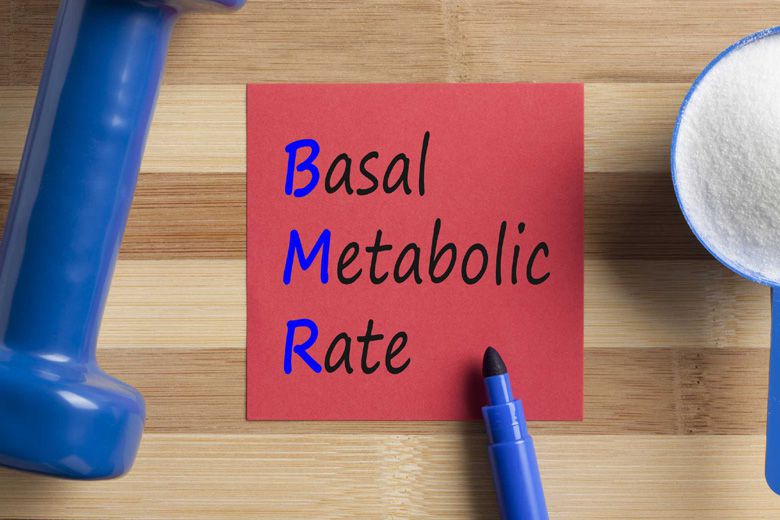How Do I Find My Basal Metabolic Rate
Whether your fitness goal is weight loss or muscle development, knowing your BMR (basal metabolic rate) is an important first step. Once you know your BMR, you will be able to create a personalized nutrition plan that adds or subtracts calories as needed to help you reach your goal.
What is BMR?

BMR is basically the minimum amount of calories required to keep you alive in a resting state. You can think of it as the amount of food you would need to eat to run your body if you did nothing but sleep all day. Most people burn 70 percent of their daily calories just to breathe, pump blood around, and keep their body temperature up.
What Factors Affect BMR?
Your BMR will vary according many factors:
- Age. Starting at age 20, your BMR will drop by about 2 percentage points every 10 years.
- Gender. Men tend to have more muscle and less fat, and therefore higher BMRs.
- Height. The taller you are, the more surface area your body has to lose heat through, and the higher your BMR.
- Weight. Overweight people have higher BMRs than fit people.
- Body Fat. The less body fat you have, percentage-wise, the higher your BMR.
- Body Temperature. Running a fever or having a naturally high body temperature will also increase your BMR.
- Genetics. Some people have genetic conditions that raise or lower their BMRs. For example, some glandular conditions, particularly relating to the thyroid gland, can have a major impact.
- Environment. The colder it is outside, the harder your body must work to keep your temperature up, and the higher your BMR will be.
- Exercise. Because lean tissue requires more calories to maintain than fatty tissue, the more you exercise, the higher your BMR will be.
How Do I Find My BMR?
Now that you know all the factors influencing BMR, you'll understand why it can be so difficult to calculate!
The easiest formula for calculating BMR is simply to assume you need 35 calories for every kilo of body weight. However, obviously this formula is not very accurate, because it's only based on one factor! You're better off looking for a formula that makes use of multiple factors like gender, age, height and weight. For example, this is the Harris-Benedict Formula:
- Women's BMR: 655 + (9.6 X weight in kg) + (1.8 X height in cm) - (4.7 X age in years)
- Men's BMR: 66 + (13.7 X weight in kg) + (5 X height in cm) - (6.8 X age in years)
You can figure out your calorie needs based on your BMR by using an activity multiplier. If you get almost no exercise, multiply by 1.2. If you are moderately active, multiply by 1.55, and if you are training for marathon, multiply by 1.9.
Get Expert Help with BMR
The most precise BMR calculation will also take your lean body mass into account. In order to do this, you will need to get your lean body mass measured by a professional.
